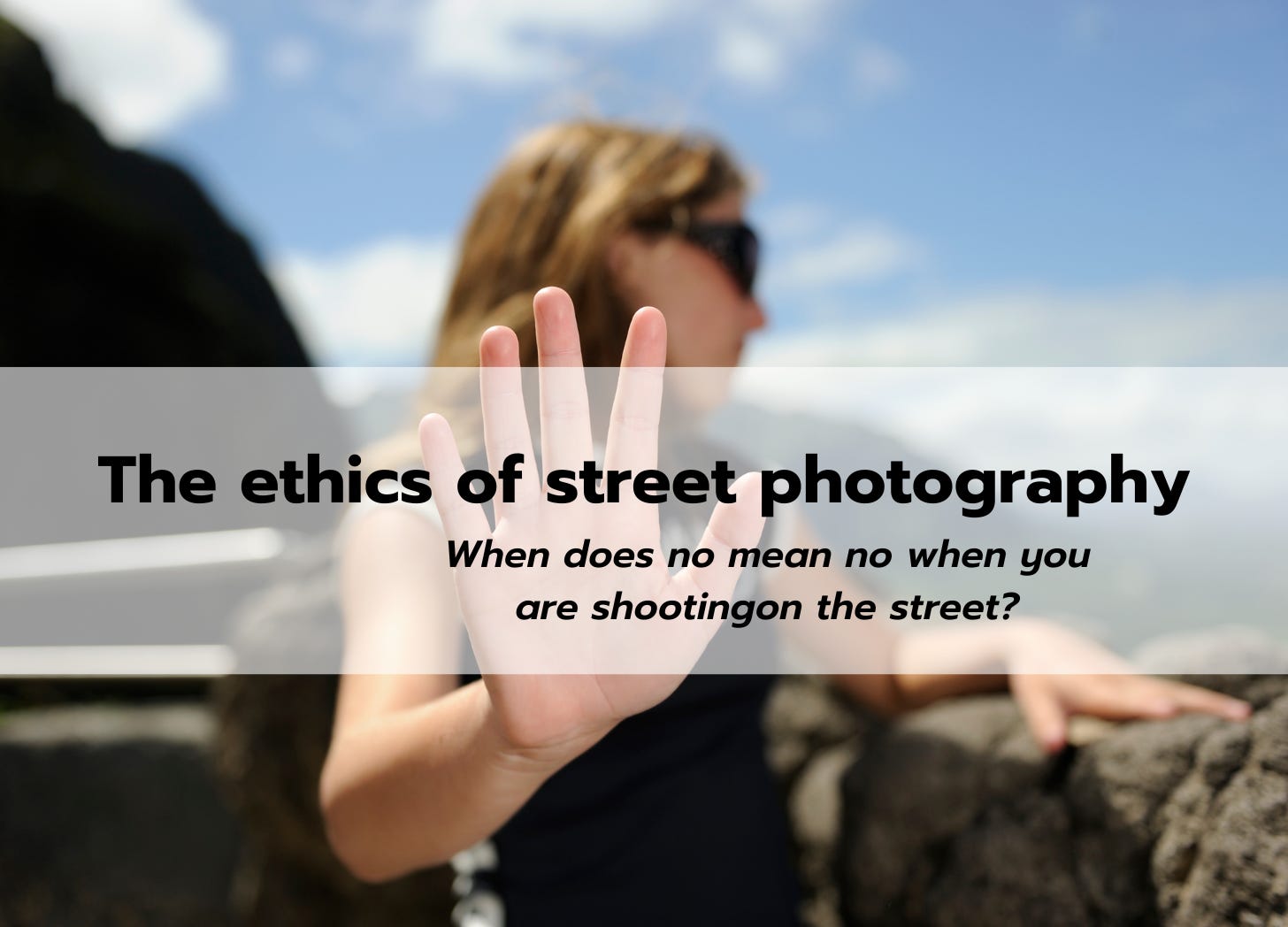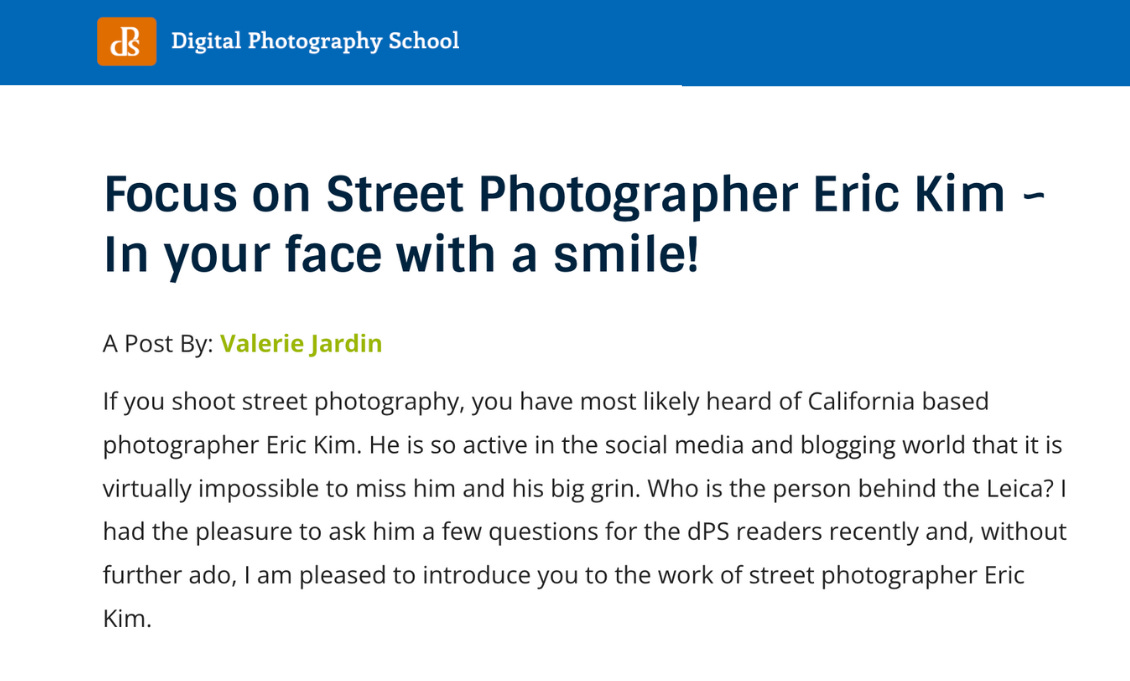The ethics of street photography
When does no mean no when you are shooting on the streets?
At the edge of a BP fuel station late one afternoon, I photographed the wrong person. By accident. What happened next thrust me into the dilemma faced by many street photographers - what happens when my rights are at odds with my subject's wishes.
What happened next was the kind of situation most street photographers hope to avoid and the decision we don't care to make.
It started as a typical afternoon shooting pictures for my Project 365, an exercise where photographers commit to taking picture a day. The BP oil spill story had just broken in the news, and I chose the topical story as my theme for the day's shoot. I pulled into a BP Station and started my establishing shots.
About 10 minutes into my shoot, while I was still looking for inspiration, a very angry man stormed up to me.
"Am I in your pictures?" he demanded.
"I have no idea. I wasn't taking pictures of you," I laughed and kept moving.
He followed.
"I need to see if I am in any of your pictures and delete them if I am," he said, clearly getting more agitated.
"Look, I wasn't taking pictures of you. I wasn't paying attention to you. I really don't care if you are in the pictures or not," I replied. Now I was getting annoyed.
"No. I care!" He raised his voice and glared.
At that point, I was faced with a decision. Do I give in to his demands or hold to my right to take photographs, regardless of his wishes?
When does no mean no? Eric Kim's experience
I was reminded of this exchange after reading a Digital Photography School interview with street photographer Eric Kim and a couple comments that followed the article.
Eric recalls one of his scariest street photography encounters, which happened when he was shooting in Toronto:
"I took a photograph of what appeared to be a male aspiring Asian pop-star wearing nothing but skin-tight leather leggings and a leather vest. I took his photograph and kept on walking, and he turned around and asked me if I took his photograph. I told him I did, and he told me to delete the image. I looked at the image and thought it was quite interesting, so I refused. He then started getting violent and started shoving me in the chest, spitting while he was talking, and threatening to call the cops. I stood my ground and told him to go ahead and call the cops—as I was doing nothing wrong by shooting in public. He pretended to call the cops, and then stormed off afterwards."
I felt Eric's pain and understood his decisions. A couple people in the comments section raised interesting points, however.
PK said
"I’d be intensely peeved if this – or any – photographer took a photo of me without my permission and then refused to delete it after being requested to do so. I don’t care if you, as a photographer, find an image of me “interesting” – the subject could be in Witness protection, running from the law (or an number of reasons) – or, like me, running from an abusive ex-partner, who would kill me should he find me, and if that photo made it onto the ‘net, and if he happened to find it, well, let’s just say it wouldn’t be pretty. People like Kim don’t think about things like that. They just care that the shot “looks interesting”. How about thinking about others for once?"
Alyacroft then responded
"I agree with pk. It’s one thing if you take a photo, someone requests you to delete it, and you do so, but to refuse to delete your photo just because it will benefit you? That is unethical. I think Kim’s photography is very interesting and while I wouldn’t get into people’s faces without permission, I think that’s not a terrible thing. I think that line is a little shakey, but permissible. But if he is asked to delete the photos, I believe he should do so. I think as human beings it is our duty to be kind and respectful to people. Too many people in the world are out for their own good and not for the good of others."
This is an interesting discussion. In a situation like this, the photographer is faced with at least three options: the photographer's right, the courteous choice, and the artistic imperative.
The Photographer's Right
Bert P. Krages, an attorney and photographer, published the often cited Photographer's Right - a one-page synopsis of your rights and remedies when stopped or confronted for photography. Here's the general rule: when you are on public property, you are legally allowed to photograph anything you want. Property owners can restrict you when you are on their property, and if you anticipate problems, it is prudent to ask. Krages says that you can also photograph any person when you are in a public place. In most instances, the law is on your side as a photographer. No one should be able to stop you, detain you, or confiscate your camera or pictures. That's the law.
The courteous choice
One of my instructors always counseled "just because you can, doesn't mean you should."
Yes, the law might be on your side, but does that mean you should take every shot? Keep every shot? Display every shot? Of course, it depends. If I'm taking pictures in a public place and the subject sees the camera pointed at them, sometimes I just smile, motion to the camera. I give the universal "do you mind?" gesture. In many cases, they return the smile and continue with whatever they were doing. Some say no, and I move on. It's my right, but it's not a need. The law says I can, but there's not reason why I should. I'll respect the request.
The artistic imperative
"Morton!" Zeke would growl. "Here's an ethical dilemma for you."
Zeke was an editor I worked for early in my career. He was a gruff chain smoker who loved to regale us with stories of the good old days.
"Let's say you are on your way to work, and you happen upon an accident where someone is obviously obviously hurt. You have your camera. Here's your ethical dilemma... What speed film do you use?" Then he would roar in laughter.
The point, of course, was that as a photojournalist, you always take the shot. You worry about ethics and propriety later. But you take the shot. That is instinctive and uncompromising.
There are times when news value, artistic beauty, or the significance of the moment will lead you to snap the shot...and keep it. I call that the artistic imperative. It's about the work. How will you know? Like love, when it happens, you will know it. And you will know the law is on your side.
In that afternoon outside the BP station, I deleted the pictures. The angry subject trudged off muttering to himself.
Why? Whatever made him that angry about being in my shot, I wasn't interested in finding out. He wasn't the intended subject, and there was nothing in the image worth fighting about. If I was on assignment for the Washington Post or some other publication, I might have felt differently. But on that day, it wasn't worth it.
I didn't like the picture anyway. Maybe that was the real reason. :-)
Inspiration



